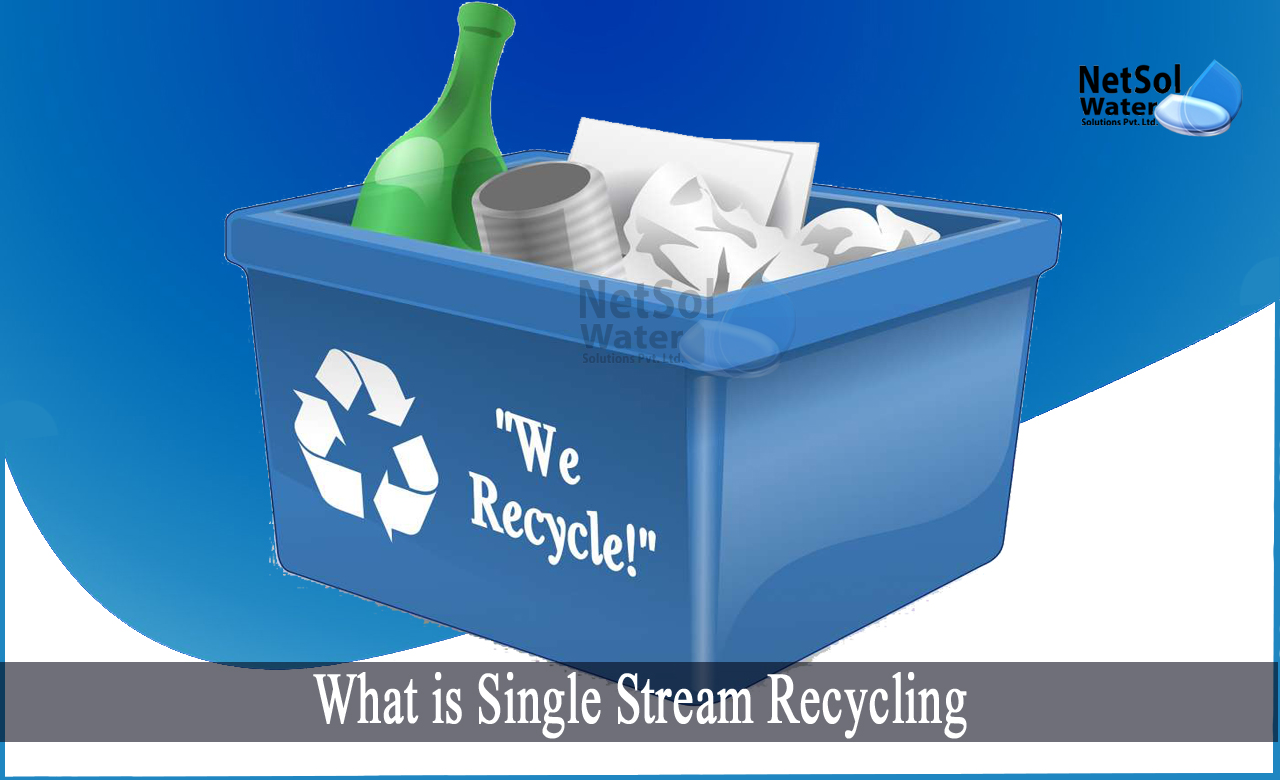What is Single Stream Recycling?
In a single-stream recycling system, all paper fibres, plastics, metals, and other containers are mixed together in a collection truck, rather than being divided by the depositor into different commodities, such as, newspaper, paperboard, corrugated fiber-board, plastic, glass, etc., and handled separately throughout the collection process.
Processing and collection systems
In single-stream recycling, materials are sorted for reuse at a materials recovery plant, while the collection and processing systems are built to manage this completely mixed combination of recyclables.
Is single stream recycling easier?
The dual-stream option, in which consumers separate different types of recyclables, and put them in different containers for collection, is replaced by the single-stream option. Single-stream is simpler to participate from the standpoint of the end user.
Advantages of single-stream recycling
Single-stream recycling proponents list the following benefits:
1) Less effort put forth in sorting by residents may result in more recyclables being moved to the curb, and increased participation in recycling by residents.
2) Since, single-compartment trucks are less expensive to buy and run, collection can be automated, and collection routes can be serviced more effectively, all of which lead to lower collection costs. With single-stream, a driver spends less time on the road, since it takes them less time to collect recyclables.
3) Greater fleet flexibility enables the collection of recycling using single-compartment vehicles, resulting in a reduction in the demand for reserve vehicles. When a refuse truck is being utilized to collect recycling, it is sometimes indicated with a sizable sign or banner, to prevent customers from becoming confused (instead of refuse).
4) Since the transition to single-stream is frequently accompanied by a switch from bin-based to cart-based collection, worker injuries may go down.
5) By switching to single-stream recycling, there may be a chance to modernize the system for collecting, and processing recyclables and to accept additional materials.
Single stream recycling contaminants
People frequently place prohibited things in recycling bins. Food trash, napkins, Styrofoam, and soft plastics (also known as plastic film), including food baggies, plastic wrap, and plastic grocery bags, are some of the most frequent items thrown into recycling that can't be recycled.
Is stream contamination a problem?
This issue has the potential to prevent many recyclables from being recycled, and instead cause them to wind up in landfills.
Recyclable load contamination is on average 16 percent per tonne and rising, but it can reach 50 percent every load, according to the authorities. While some transporters accept a tiny amount of contamination in each shipment, others demand complete purity for materials to be deemed recyclable.
What actions can be taken to avoid stream contamination?
It's critical to educate yourself on what is recyclable and what should be thrown away, to avoid having items deemed non-recyclable and dumped into landfills. Verify the recycling bins, which are frequently labelled with the materials that are accepted.
If you're unsure of what can be recycled, ask the experts at Netsol Water.
Conclusion
Despite the fact that recycling has advanced significantly over the past years, it is still unclear whether future technology advancements will be able to maximize, customer convenience, volume recovery, and material quality through a single-stream process.
How can we assist?
Netsol Water is devoted to solid waste disposal that is both safe and responsible, and the recycling of solid wastes. To do this, we provide a wide range of modern solutions, including solid waste management, wastewater treatment, sewage treatment, and much more.
We also advise our clients on how to avoid pollution by taking a sustainable approach, and using current remediation methods, including food waste converters, composting bins, green waste recyclers, etc. For additional information, call on +91 9650608473 or send an email to enquiry@netsolwater.com



